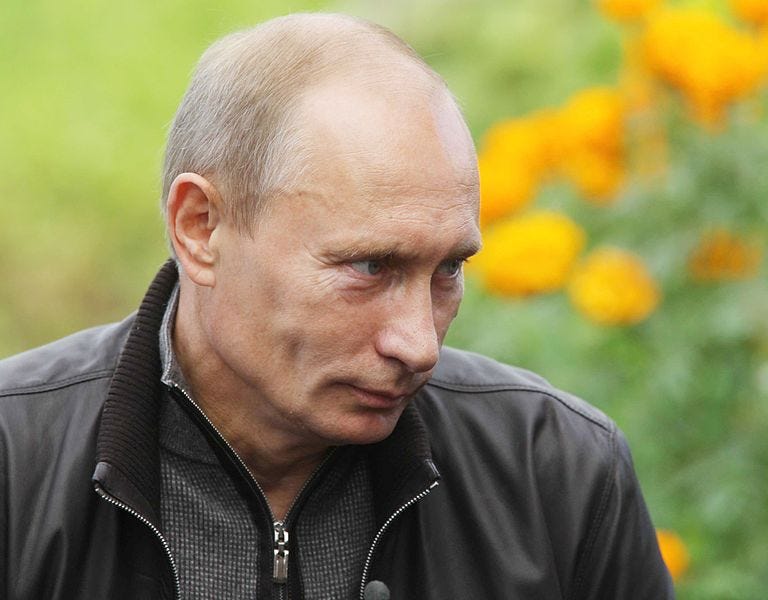7 MARCH—We continue to watch with grave concern as a propaganda operation probably without precedent engulfs Americans (and others) as the Ukraine crisis unfolds. Not in our lifetimes have we witnessed so grotesquely successful an effort to distort events and, most notably, the leader of another nation.
This is Part 2 of “Discerning Vladimir Putin,” an essay we determined to publish in part as a modest counter to the mis– and disinformation published daily in our major newspapers and broadcast on our major networks. We offer these concluding pages in the same spirit.
This essay first appeared in Raritan, the autumn 2018 number of quarterly journal. We have not, once again, updated it or edited out references no longer as pertinent as they were at the time of publication. Certain of the judgments contained in this essay would merit revision. We have not made these. We find it interesting to put the Russian president’s perspectives in 2018 against recent developments, in particular the vision of a new world order Putin shares with Xi Jinping. But we have written no inserts to do so. Our intent is to present a document that conveys a good sense of the Russia’s leader’s thinking and circumstances as they were four years ago, that we might understand him better than we do.
Part 1 of “Discerning Vladimir Putin” can be found here.
——The Editors.
By Patrick Lawrence
SOME YEARS AGO, I took a walk in central Moscow with a new acquaintance. It was my first time in the Russian capital, and I remarked on its dignity, the best of its architecture, the pride people took in their dress. I had not expected to see such things. We were along the Lubyansky Proyezd, not far from the Mayakovsky Museum and the old KGB headquarters. The Bolshoi and Red Square were a little farther on.
My companion asked, “Do you know what you would have seen here when the century turned to 2000?”
I did not and said so.
“Empty bottles, syringes, petty thieves, homeless people. Empty lives everywhere.”
This is a mere snapshot of what Boris Yeltsin handed Vladimir Putin when Yeltsin was effectively chased from office on New Year’s Eve in 1999. Putin won his first presidential election three months later. In the simplest terms, his inheritance was a nation at the edge of collapse for the second time in a decade—the third in less than a century. The facts of the case are well established: Unemployment and poverty rates, while hard to measure, were respectively up to 50 percent and 75 percent. The large middle class of the Soviet era—yes, there was one—was destroyed. There was a “mortality crisis,” as one American scholar put it. Malnutrition, alcohol, drugs, disease, homicide, suicide: These had claimed several million lives, by accepted estimates. Life expectancy dropped by nearly ten years, to less than sixty. Corruption and kleptomania, like the bottles and syringes, were everywhere. The formidable national assets accumulated during the seventy-year Soviet period were—no other word—looted by a combination of local oligarchs and foreign investors.
It is only mildly surprising that most Americans remain dimly aware, if at all, of the Yeltsin years’ tragedies. The wall of nonsense erected to obscure them was high, thick, swiftly in place, and remains so. Michael McFaul, the most brazenly dishonest American ambassador to serve in Moscow during my lifetime, said late in the Yeltsin era, “Basic arrows on all the big issues are pointing in the right direction.” By then Bill Clinton, as president, had already declared, “Yeltsin represents the direction toward the kind of Russia we want.” The Western press was unreservedly complicit in this immense deception. “We edited out the pain,” one correspondent later acknowledged.
With no grasp of this history, we cannot hope to understand the forty-eight-year-old who took office in 2000. And we ought not pretend to. Putin’s immediate imperatives were plain. Highest among them was stabilizing national institutions to counter another threat of collapse. He had to redirect national wealth back to an impoverished citizenry. Reining in the oligarchs, putting millions back to work, reconstituting some form of political process, safeguarding nuclear stockpiles: All this and more was on Putin’s plate.
Keep reading with a 7-day free trial
Subscribe to The Floutist to keep reading this post and get 7 days of free access to the full post archives.



